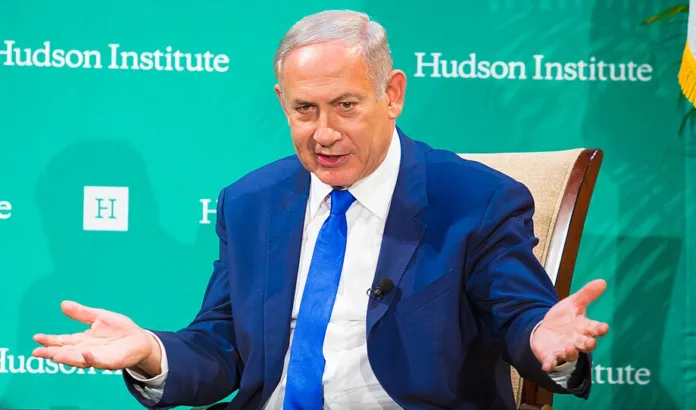Israeli Prime Minister Benjamin Netanyahu confirms support for the latest US ceasefire and hostage deal proposal, while Hamas delays acceptance, causing a potential summit in Cairo to become crucial
In a pivotal moment for the ongoing Gaza conflict, Israeli Prime Minister Benjamin Netanyahu has affirmed his support for a new US-backed proposal designed to resolve the hostage crisis and establish a ceasefire. US Secretary of State Antony Blinken announced this development after a productive meeting with Netanyahu in Tel Aviv on August 19, 2024. The proposal aims to address critical gaps between Israel and Hamas, including the contentious issue of IDF troop presence on the Gaza-Egypt border.
Blinken’s discussions with Netanyahu focused on bridging differences and ensuring both sides could agree on the terms of a potential ceasefire. Netanyahu’s endorsement of the proposal marks a significant step towards a resolution, yet the agreement is not finalized until Hamas responds positively. The Israeli leader has committed to sending his top negotiators, including Mossad Chief David Barnea and Shin Bet Director Ronen Bar, to a summit in Cairo later this week. This summit will aim to finalize the details of the proposal.
Embed from Getty ImagesHamas, however, has raised concerns about the proposal’s alignment with their terms. Hamas official Osama Hamdan criticized Blinken’s statements, claiming that the latest proposal did not match what was previously discussed or agreed upon. Hamas has expressed the need for an implementation mechanism rather than further negotiations, arguing that the current proposal does not address their core demands.
One major point of contention remains the Philadelphi Corridor, a crucial border area between Gaza and Egypt. Netanyahu insists on maintaining an IDF presence there for security reasons, while Hamas rejects this demand. The US, along with mediators from Egypt and Qatar, is working to find a compromise that would satisfy Israel’s security concerns without obstructing the peace process.
The summit in Cairo will play a crucial role in determining whether the proposal can gain consensus from all parties involved. Blinken will travel to Egypt and Qatar to push for the summit and continue negotiations. The US has also increased its military presence in the region to deter potential aggression and support Israel in its security needs.
The situation remains fluid, with both sides navigating complex political, social, and security considerations. The coming days are critical as international efforts intensify to secure a lasting resolution to the conflict and address the humanitarian crisis facing those affected by the ongoing violence.
Analysis
Political
The endorsement of the US proposal by Israeli Prime Minister Benjamin Netanyahu represents a strategic pivot in the conflict resolution process. Netanyahu’s support signals a potential breakthrough in negotiations, but the agreement’s success hinges on Hamas’s acceptance. Politically, this development reflects a high-stakes balancing act between maintaining Israel’s security interests and addressing international pressure for a ceasefire. Netanyahu’s decision to back the proposal while insisting on an IDF presence along the Philadelphi Corridor underscores his administration’s focus on security concerns and its commitment to achieving a comprehensive deal that aligns with Israel’s strategic goals.
Social
The ongoing conflict and the proposed ceasefire deal have profound implications for the affected populations. The humanitarian impact of the conflict, particularly on civilians in Gaza, underscores the urgency of reaching an agreement. The hostage situation, with its emotional and psychological toll on families, adds another layer of complexity to the negotiations. The social discourse surrounding the conflict reflects broader debates on human rights, security, and the international community’s role in resolving such crises. The proposed deal highlights the need for not only a political resolution but also a humanitarian approach that addresses the immediate needs of those affected by the violence.
Racial
While the current negotiations primarily focus on political and security issues, they also intersect with broader racial and ethnic dynamics in the region. The conflict between Israel and Hamas has deep historical roots that involve ethnic and national identities. The US-backed proposal, by aiming to address specific security concerns and humanitarian issues, indirectly touches upon these racial and ethnic dimensions. Understanding the historical context and ethnic tensions that underpin the conflict is crucial for analyzing the proposal’s potential impact on long-term peace and reconciliation efforts.
Gender
Gender dynamics play a significant role in the context of conflict and peace negotiations. Women and children are often disproportionately affected by conflict, experiencing higher levels of displacement, violence, and psychological trauma. The proposed ceasefire deal, if implemented, could help alleviate some of the gendered impacts of the conflict by reducing violence and improving humanitarian conditions. However, it is important to ensure that gender considerations are integrated into the peace process, with measures in place to address the specific needs and experiences of women and children in conflict zones.
Economic
The economic ramifications of the conflict and the proposed ceasefire deal are substantial. The ongoing violence has severely impacted the economies of both Gaza and Israel, with significant costs related to military operations, reconstruction, and humanitarian aid. The US proposal aims to address some of these economic concerns by establishing a ceasefire and facilitating the release of hostages. Successful implementation of the deal could help stabilize the region economically by reducing the immediate costs of conflict and opening opportunities for reconstruction and development. However, achieving long-term economic stability will require comprehensive agreements on border control, resource allocation, and economic cooperation between the parties involved.
